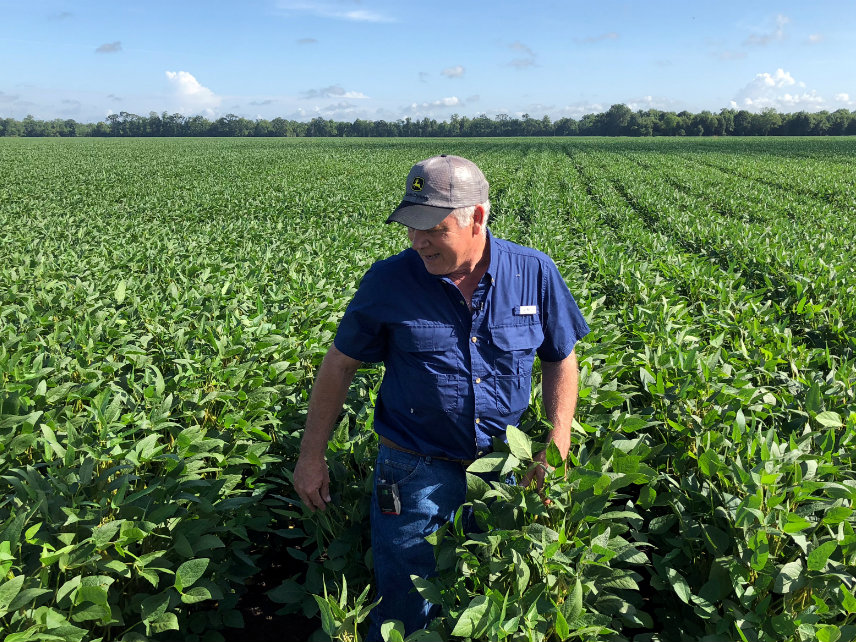Trump Readies $6 Billion Bailout for Farmers Harmed by Trump Tariffs
Most of the funds are earmarked for soybean farmers, who would really rather just be able to sell their goods to China again.

President Donald Trump's trade war is going so well that the Department of Agriculture is about to start bailing out farmers.
The department announced today that the first $4.7 billion of a planned $12 billion aid package will be made available next week to farmers growing soybeans, cotton, wheat, and other products targeted by Chinese tariffs. (Those Chinese trade barriers, in turn, were a response to the Trump administration's decision to put tariffs on about $50 billion of Chinese goods.) Most of the bailout funds—$3.6 billion of the total—are earmarked for soybean farmers, who have been particularly hard hit by this year's trade war.
The money is being provided by a New Deal–era crop insurance program that's been dormant for decades. The feds will also purchase up to $1.2 billion in "commodities unfairly targeted by unjustified retaliation"—a bonus bailout by other means.
Soybeans are the most widely planted crop in the United States this year, narrowly edging out corn for the first time ever. Nearly half the U.S. soybean crop in recent years was exported. So Trump's trade war has wreaked havoc on farmers who bet on soybeans: Prices have dropped by more than 20 percent in the past three months. A ship loaded with soybeans spent a month circling Chinese ports after narrowly missing the deadline for tariff-free trade, in the process becoming a depressing symbol of the trade war's consequences.
While farmers and agricultural trade associations seemed to welcome the news of the bailouts Tuesday, many pointed out that they would prefer a reopened Chinese market to payoffs from Washington.
"This aid will allow a momentary reprieve," says Michael Petefish, president of the Minnesota Soybean Growers Association, in a statement. "Unfortunately, if this trade war continues much longer, this aid package will feel less like a Band-Aid and more like a reminder of the trade relationships we lost and must rebuild."
Trump's trade war has caused many self-inflicted wounds, but none is as obvious as this plan to bail out farmers who wouldn't have needed saving if the tariffs had never been erected in the first place. This own goal comes with a $12 billion price tag for American taxpayers—who, oh yeah, are also going to have to pay more for various products, thanks again to Trump's tariffs.
As I've written before, you shouldn't view these subsidies solely as an economic program. They're better thought of as a public relations campaign in advance of the midterm elections. But even on that level, it will probably fail. Even if the bailouts made every injured American farmer whole, all they'd do is force a lot of people to fill out forms and stand in line to arrive back where they were before the trade war started.
But throwing money at a problem to make it go away is straight out of the Trump playbook. "This guy is trying to treat American agriculture like Stormy Daniels," an Indiana farmer named Mel Egolf told The Economist's James Astill two weeks ago. "He's saying take my money and keep quiet."
